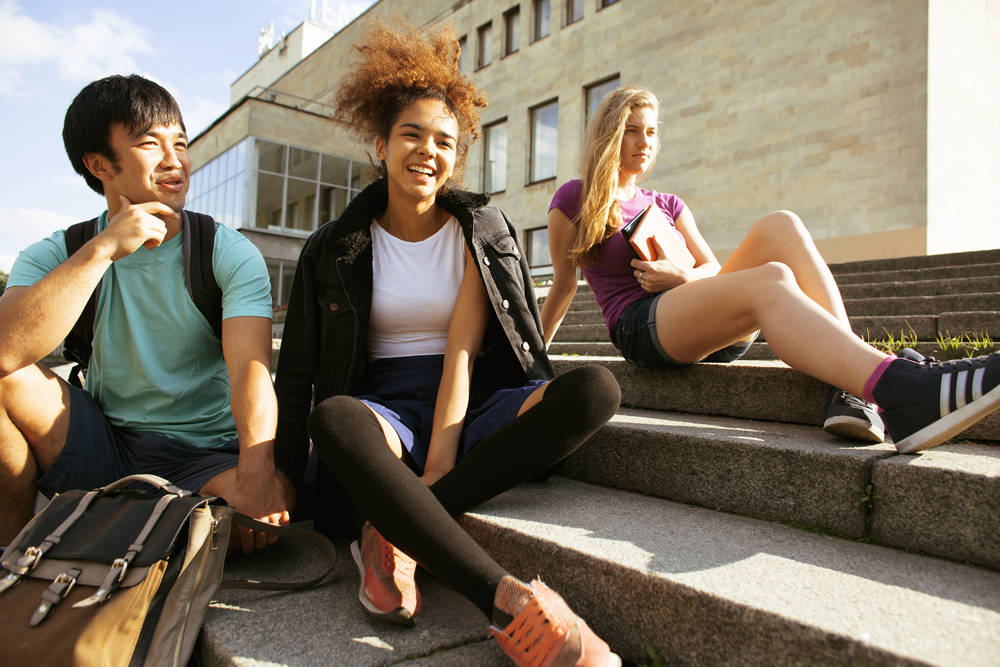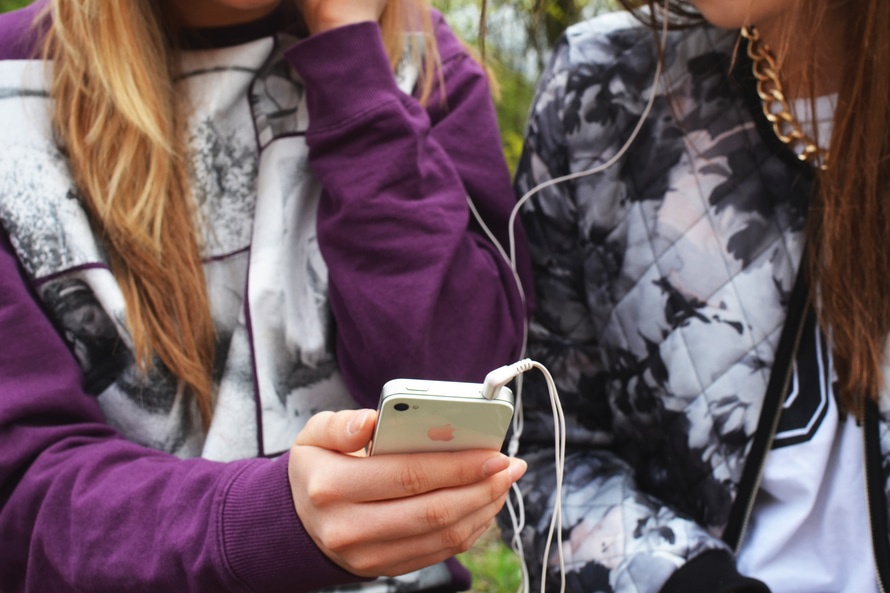We are excited to share new features that being added to the Healthy Relationships Curriculum for Fall 2018 that will be provided to current and pending licensees at no additional charge!
healthy relationships
Progressing from Awareness to Acceptance – Incorporating Social Goals into the IEP
This month, our blog is focusing on how to include strategies into a student’s Individualized Education Plan (IEP) that relate to healthy relationships with oneself and others.
April is recognized worldwide as Autism Awareness Month. There is a current movement within the autism community to not only continue to heighten autism awareness but to more importantly foster understanding and acceptance of individuals who identify as having an autism spectrum disorder (ASD).
Within this post, our team would like to stress the importance of including social problem-solving goals within a student’s Individualized Education Plan (IEP), regardless of their diagnosis.
We will reiterate language from our previous post for emphasis, as we believe so strongly in this description. The IEP is truly the cornerstone of a student’s special education program and should reflect the strengths, needs and progress of an individual as they move through their school experience. An IEP should address academics, vocational planning, community engagement, domestic function, and recreation. Within the domestic domain, the IEP should examine skills needed for daily living.
Social skills connect an individual to their environment and the greater community. An important step in a student’s development is their ability to interact with both educators and peers, and to maintain appropriate relationships with family, friends, and the members of the community outside of school hours.
Parents, teachers, other team members such as speech therapists, and the student themselves as a self-advocate as much as possible, should work together to evaluate what social problem-solving skills a student currently possesses.
The IEP team should consider their ability to:
- recognize and greet others
- initiate a request or demonstrate need
- respond to others’ questions and inference perspectives
- differentiate between strangers and friends or acquaintances
- engage in a back and forth conversation with others
- take turns or share group efforts in a school, work or community setting
- recognize personal space, voice modulation, and non-verbal communication techniques such as pointing and gesturing
- understand the difference between platonic friendships and romantic relationships
Once a student’s social strengths and areas of need are thoroughly assessed, their IEP goals can be created with a goal of increasing consistent practice of these skills that will ultimately promote success.
A helpful resource for teachers to use to instruct social skills is the Healthy Relationships Curriculum. The Healthy Relationships Curriculum uses learning modules and video modeling with role-plays to teach and remediate these skills and also offer examples of both appropriate and inappropriate interactions.
This method of instruction was recently endorsed by Dr. Tammy Hughes, Chair of the Department of Education at Duquesne University as “the best method available nationwide to teach adolescents and young adults about themselves, their sexuality, and their social relationships.” A student’s social development helps them to progress towards post-secondary education, independent living, meaningful employment and possibly long-term partnerships. It is critically important for the IEP team to include social skills as part of the IEP goals and to have a comprehensive plan for how to instruct them.
As shared previously, our blog posts are written by members of our team who have first-hand experience – often family members – with autism and/or comorbidity comprised with experience working within school systems and healthcare agencies that support individuals with ID, ASD, developmental disabilities and emotional disturbance. It is our belief that individuals who are encouraged to understand the importance of developing their social problem-solving skills and given appropriate instruction will likely be more successful in being accepted by their peers and the community in which they live.
Are you thinking of bringing the Healthy Relationships Curriculum to your classroom, group or practice? Click on the Contact Us page to request a sample packet, ask a question, or to schedule a presentation for your team.
HRC and IEPs – How to Incorporate Self-Care Goals and Strategies
This month, our blog will focus on how to include strategies into a student’s Individualized Education Plan (IEP) that relate to healthy relationships with oneself and others.
Our posts are written by members of the HRC team who have first-hand experience (often family members) with the different disabilities, as well as professional experiences working within school systems and providers that support individuals with Intellectual Disabilities (ID), ASD, developmental disabilities and behavioral health challenges.
As the new school year is upon us, you are probably thinking about writing efficient IEP goals for your students. How you will teach them the skills needed to progress towards mastery of these goals? The IEP is the cornerstone of a student’s special education program and should reflect their strengths, needs, and progress as they move through school. An IEP should address academics, vocational planning, community engagement, domestic function, recreation, and transition goals to help prepare them for life into adulthood. The IEP should examine skills and have goals for daily living so the students can be productive in all areas of their lives. In this post, we would like to touch on self-care.
Hygiene, including proper self-care, is critically important in preparing an individual to achieve independence within the community. Without consistently bathing or showering, dressing appropriately for an environment, maintaining good grooming, and using the bathroom independently, it is unlikely that an individual will be successful at school, at work, or within their interpersonal relationships. Establishing proper hygiene skills as early as possible prepares a student for participation in the community and may help to prevent being bullied by others.
Teachers, parents, and students (depending on their abilities) should work together as a team to proactively assess the hygiene skills that are currently in place. Once the team has determined what skills are currently in place, the team can focus on what hygiene and self-care skills need to be addressed to help the student achieve optimal success. Hygiene and self-care goals in an IEP can include, but not limited to, such tasks as:
• Hand-washing
• Using tissues after sneezing
• Teeth brushing and flossing
• Selecting appropriate clothing for school or work
• Communicating the need to use the bathroom
• Using the bathroom safely (for example, ensuring that boys using the urinal are not dropping their pants to the floor making them vulnerable to sexual harassment and bullying)
Teachers can utilize a combination of demonstration, visual aids, repetition, direct instruction, and social stories to educate students about hygiene. Involving caregivers at home to reinforce appropriate hygiene is also key to helping a student progress on their IEP goals and promote generalization across environments.
The Healthy Relationships Curriculum is a valuable, comprehensive tool to help school districts and organizations educate individuals about good hygiene. The program utilizes evidence-based practices while continually assessing the mastery of skills in this critical area of self-care. If you have questions about including hygiene and self-care goals into an IEP, or to learn more about our curriculum, contact a member of our team today!
Upcoming posts will address the importance of sex education during critical periods of adolescence, as well as social skill needs, to enhance relationships.
Preventing Crime and Victimization By Teaching Healthy Relationships
This blog entry was submitted by a member of the Healthy Relationships Curriculum team who has raised a child with autism and serves as a community advocate for change:
The Parkland High School shooting has brought increasing attention to the subject of crime as it relates to individuals with ASD. As a parent of a teen with autism, I have tried to learn as much as possible about legal issues and criminal behavior as it relates to autism as well as other developmental delays and co-morbidity. I have also spent a great deal of my time as an advocate researching, developing and conducting autism training sessions in the juvenile justice system for law enforcement, probation officers, and judges.
We need to consider the following:
* Current research suggests that there is limited and conflicting evidence regarding the volume and frequency of crimes committed by individuals with autism. There are over 3.5 million people living in the U.S. with an ASD diagnosis. It is estimated that less than one percent of these individuals have ever been arrested or charged with a crime.
* Individuals with ASD charged with a crime often have other mental health issues such as ADHD, bi-polar disorder or schizophrenia that experts suggest play a greater significance in criminal behavior than autism (known as “co-morbidity”).
* Individuals with autism are much more likely to be victims of a crime than to be the offenders. In fact, the U.S. Justice Department reports that individuals with developmental delays are seven times more likely to be sexually assaulted.
* The Journal of Autism and Developmental Disorders reports that psychologists say a lack of appropriate sex education leaves people with autism more vulnerable to sexual victimization.
* Researchers at York University go on to suggest that explicit instruction on appropriate sexual behavior is more crucial for people with autism “due to difficulties recognizing red flags, and interpreting the thoughts, feelings, and behaviors of others.”
Our curriculum provides detailed and direct instruction in the areas of self-care, sexuality, and relationship development. The curriculum was specifically designed by Dr. Larry Sutton and the staff of Wesley High School to help educate and inform adolescents and young adults about the importance of healthy relationships in their homes, at school, and in the community. Subjects such as privacy, personal space, appropriate use of social media, and how to develop safe friendships and romantic relationships are covered in the Healthy Relationships Curriculum. Covering these and other related topics will undoubtedly decrease problematic behavior, strengthen an individual’s understanding of their rights and responsibilities, and ultimately lead young adults to safer participation in the community. We invite you to continue this dialogue with us, and learn how the Healthy Relationships Curriculum can contribute to prevention within the population you serve through proactive strategies.



